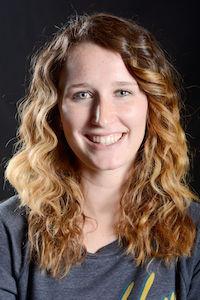
Jacqueline is a sophomore in political science.
Being a student is a full-time job. Many students are on campus all day long. There are always classes to attend. Then there’s all the homework and studying. And if you’re new to NC State and live in a dorm, you probably don’t have a car. For these reasons, it makes sense we should have convenient access to voting. However, this year there was no polling place on our campus. The Wake County Board of Elections did not select Talley Student Union as an early voting site as it did in 2012.
In addition, a Pack Poll conducted only a week before Election Day showed only about one-third of students were even aware of this change.
The poll asked students where they planned on voting in the midterm, and the results showed 5,500 students might have a problem voting. According to the poll, 28 percent of students chose Talley as the place they’d be voting. Talley wasn’t an early voting site, but the point of offering it as an option was to see if they knew it wasn’t and to get an idea of how many students expected it to be.
Michael Cobb, a political science professor who conducts the Pack Polls, said the results were “disconcerting, surprising and alarming.”
However, according to David Robinson, chair of the Wake County Board of Elections, “It’s not the Board’s job to target voters.”
With all respect to Robinson, I disagree. The Board should make it a top priority to make voting more accessible. Elections are essentially nothing without voters.
He said it is his job to help select early voting sites that are the most easily accessible and where they are most needed (population-wise). What he means by accessible is locations have to be compliant with the Americans with Disabilities Act, and they have to be able to provide curbside voting. Also, he said he couldn’t choose a site where people have to pay for parking.
“Talley Student Center failed miserably with the standards that have to be met,” Robinson said.
But, an argument against that is many new students don’t have a car on campus and the point would be to accommodate them.
Putting it into perspective: Wake County is huge. There are many precincts with varying population sizes. Robinson said some polling places have about 10,000 to 90,000 voters.
Each election, the decision as to where to put early voting sites is made upon which locations are most accessible to voters, but mainly where they are most needed population-wise. Robinson said this is determined by looking at turnout in the previous election. Even if a large percentage of NC State votes in an election, another area of Wake County may be in greater need of a polling place because it has more voters.
“The polling places right around NCSU are in the bottom 5 percent in terms of the percentage of people voting in Wake County,” Robinson said.
Though, contrary to that, the Technician reported more than 13,000 people voted at Talley in 2012. According to Cobb, 80 percent of students voted that year.
There are more than 34,000 students at NC State who would have access to early voting on campus.
There is a strong possibility of having an on-campus polling place again. Robinson said there are locations close to campus that will probably be considered for an early voting site. He said Talley just isn’t the best option for the accessibility requirements, but the Wake Board of Elections staff is already looking into options.
If enough students show they want a polling place on campus or close by, it will help to make it happen, according to Cobb. He said he’d have good data about how many students voted in this election to show there’s a need to have an on-campus site.
The Pack Poll shows there’s a significant number of students who expected Talley to be a voting site and that many students could’ve ended up not being able to make it to an off-campus site. But it’s very encouraging to hear an on-campus site is a strong possibility and that plans are already being made to have an early voting site near campus for the next election.
To students who had a difficult time voting in this recent election, voice those concerns and make a big deal out of it, such as keeping an eye out for public input meetings and contacting local representatives, if it matters to you. We’re the ones voting here, and we have potential to have a big say in whether or not we get a voting site.